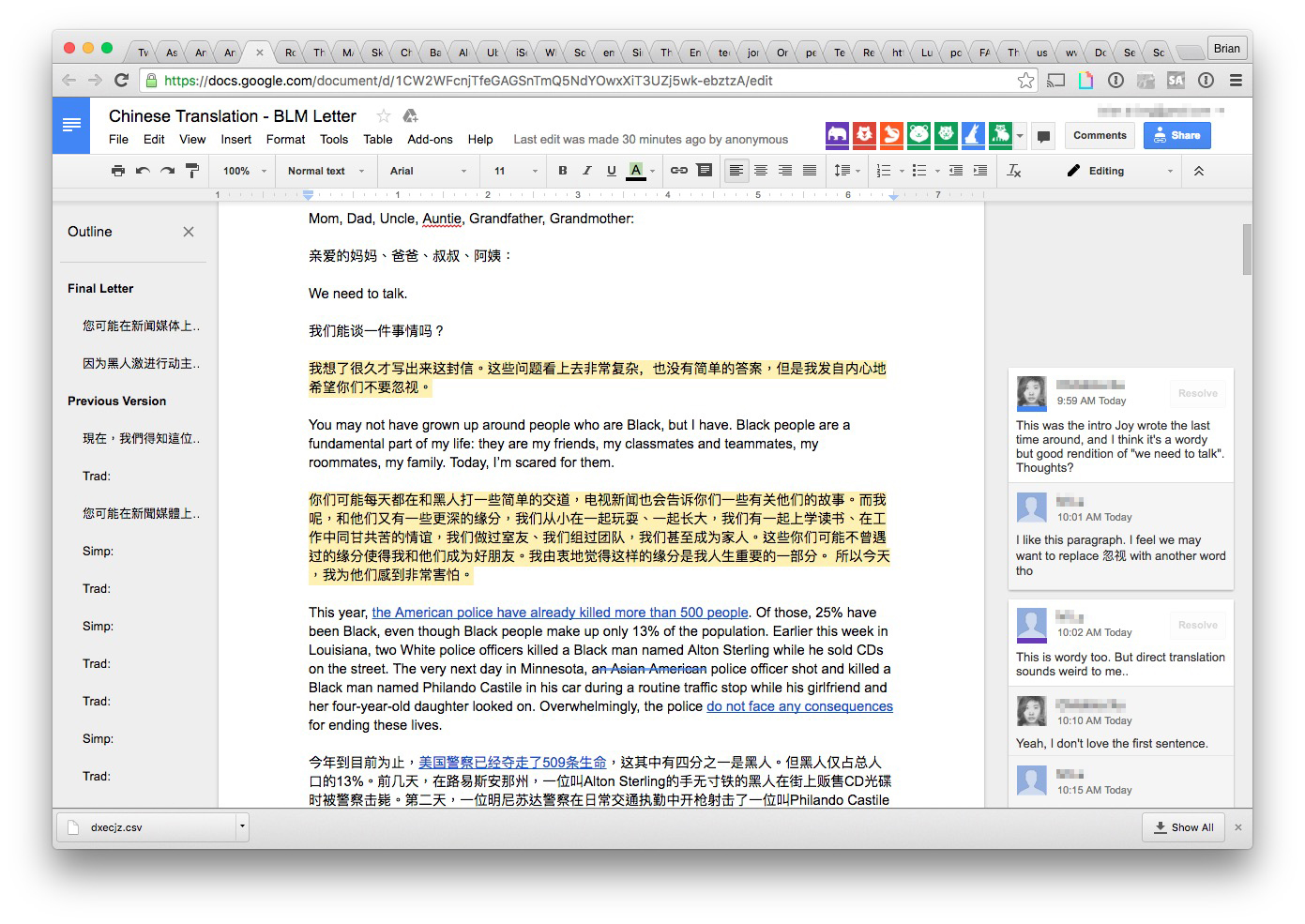Posted by Becky Liang
I hope that this letter opens up the minds of first-generation Asian immigrants and other minorities and allows them to understand that we must not remain silent about police violence against the black community and educate ourselves and others as well about this issue. There’s a hands-off mentality within our community in which we tend to ignore problems that don’t involve us. We need to end that way of thinking and take a stand whenever injustice occurs whether or not that directly affects us. There is widespread anti-blackness in our community due to the contrasting stereotypes about Asian Americans and Black Americans with the model minority myth and the criminalization and dehumanizing portrayal of Black Americans in the media. We need to commit to tackling our anti-blackness by recognizing the anti-black racism in our lives and how we benefit from it and having conversations with our family members to challenge it. Solidarity means showing our support for the movement and listen to the voices of the black community without speaking over them because their struggles are not the same as ours and we can’t fully understand their experiences. Police officers have killed far too many Black Americans without any consequences and it’s necessary that we channel the message of Black Lives Matter into our own community.

